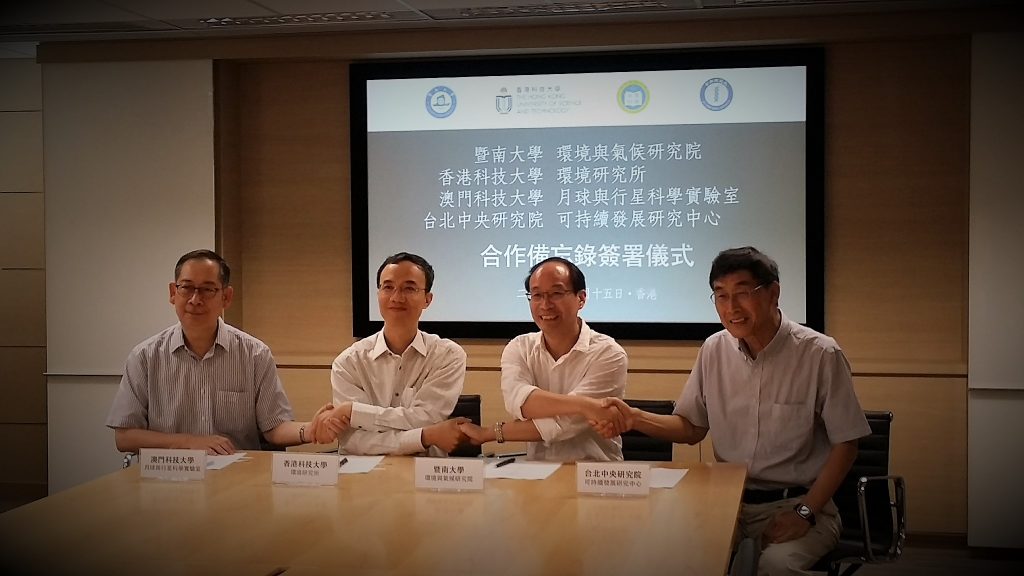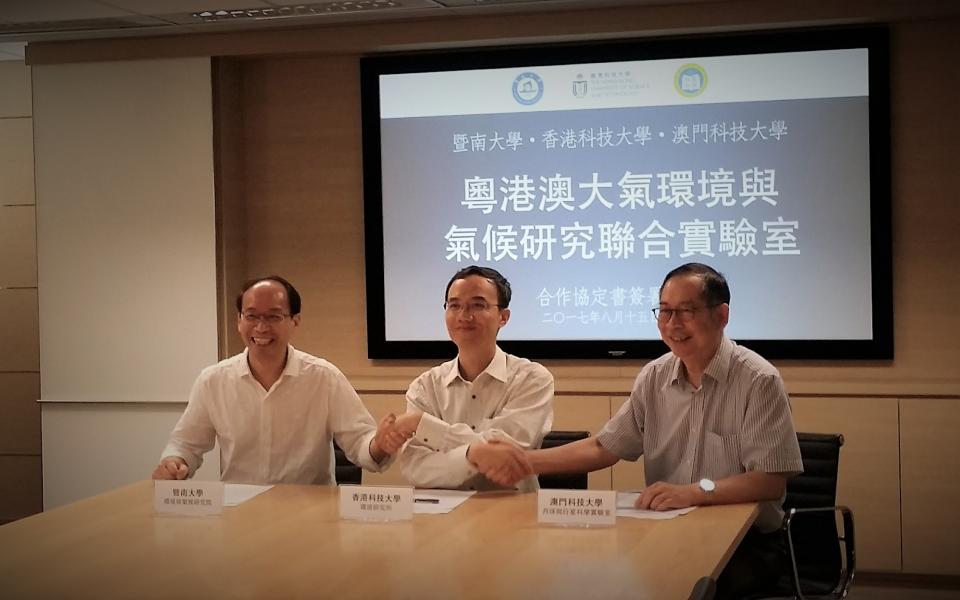
The Institute for the Environment, Hong Kong University of Science and Technology, Hong Kong; Institute for Environmental and Climate Research, Jinan University, Guangzhou; Lunar and Planetary Science Laboratory, Macau University of Science and Technology, Macao; and Center for Sustainability Sciences, Academia Sinica, Taipei reached a Memorandum of Understanding (MoU) on 15 August 2017. The purpose of the MoU is three-fold: to facilitate cross-boundary academic exchange, to develop academic and scientific relationships, and to support collaborative research activities.
By signing the MoU, the four institutions consent to give a high priority to cooperative research in climate change and air quality over the next three years. This is expected to forge stronger relationships among the area’s leading research institutions through increased academic personnel exchange and visits and more exchange of scientific materials.
Under the MoU, post-graduate students from the different institutions can look forward to greater opportunities for joint activities to pursue their common interests. These will include post-graduate training, co-supervision of Master and PhD students, guest professorships, and visiting senior scientist positions, as well as co-application for research grants.
Joint lab agreement on Hong Kong-Guangdong-Macao ambient environment and climate research
Meanwhile, in light of China’s mission to form a green, liveable and world-class metropolis regional cluster in the Hong Kong, Guangdong, and Macao Bay Area, the Institute for the Environment, Hong Kong University of Science and Technology, Hong Kong; Institute for Environmental and Climate Research, Jinan University, Guangzhou; Lunar and Planetary Science Laboratory, Macau University of Science and Technology, Macao have signed a Joint Lab Agreement on Hong Kong-Guangdong-Macao Ambient Environment and Climate Research. The agreement is a commitment by the institutions to carry out cooperative research for the Bay Area, harness strong scientific pieces of evidence to support decisions, and provide development strategies to governments, and to further educate the public about the ambient environment and climate change.

